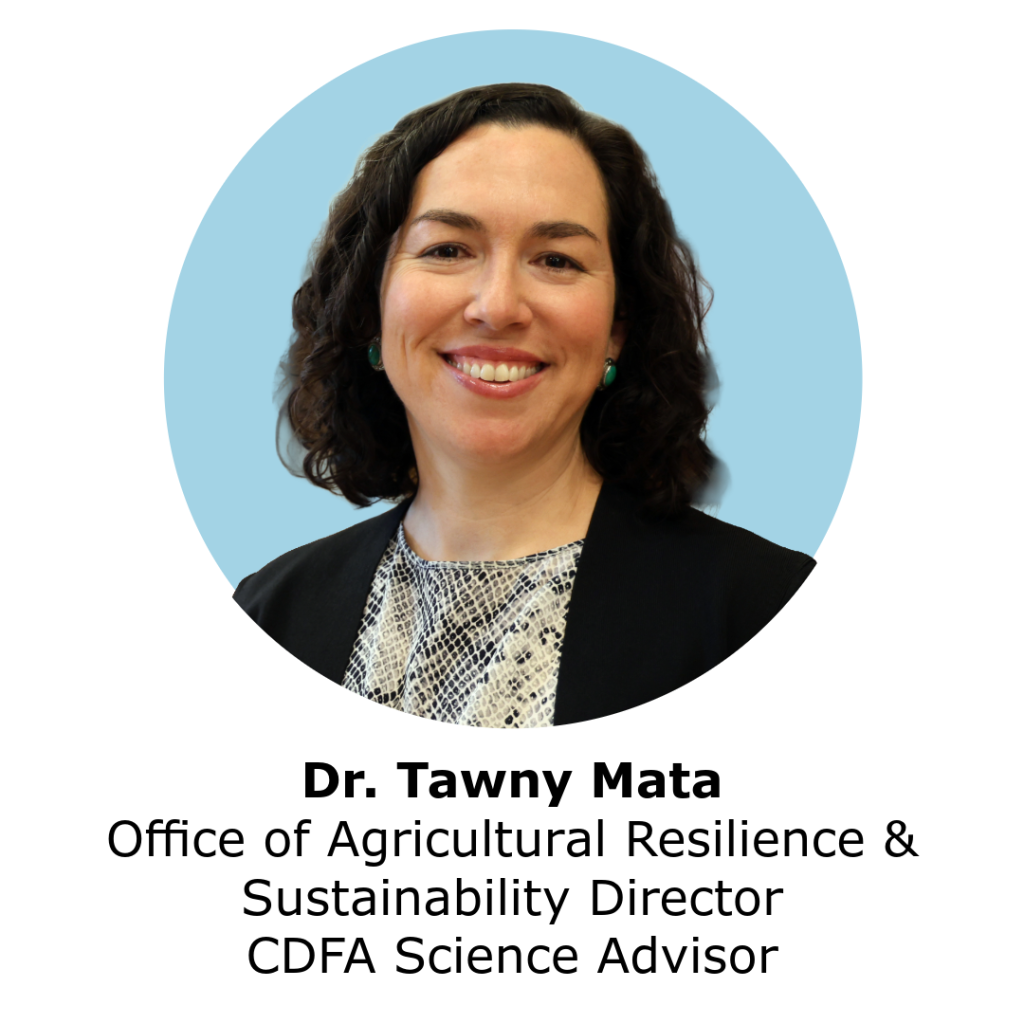
Dear Stakeholders,
I hope you enjoy this newsletter showcasing the accomplishments of our grantees and partners and giving you a peek at how we lead our programs to serve producers while contributing to the state’s sustainability goals. Additionally, I want to take this opportunity to summarize the funding status of OARS programs, so you know which opportunities are in the future.
OARS expects to receive $65M in funding for our Healthy Soils Block Grant Program (HSP) and $40M in funding for our State Water Efficiency Enhancement Block Grant Program (SWEEP) from Proposition 4 – Climate Bond and we tentatively plan to offer all of that funding as part of one funding opportunity in fall 2025. Through Prop 4, OARS also expects to receive $15M for a new Equipment Sharing Program (ESP) that will require extensive stakeholder consultation before opening for applications in 2026. The legislature has not appropriated the Prop 4 funding, and the state is still in the process of finalizing rules and guidelines for using the funding. The timeline of these two key external processes may affect OARS’ timeline.
All state funding appropriations have an “expiration date,” and it is always our goal to give grantees a generous grant term within that expiration date to allow for bumps in the road. To that end, we will keep pushing forward with refining framework for the HSP and SWEEP solicitations at our August 15th Environmental Farming Act Science Advisory Panel (EFASAP) meeting, followed by a written public comment period and simultaneous stakeholder workshops that will inform the final Request for Grant Applications. We look forward to your participation and help refining our block grant model.
Our Dairy Plus Program, which is a subaward from the California Dairy Research Foundation of a grant funded by the USDA Alternative Markets for Producers initiative (formerly the Partnership for Climate Smart Commodities program), is ongoing but undergoing federal review and revision. This program funds infrastructure on dairies that reduces greenhouse gases and improves nutrient management, and we have approximately $58M remaining in the budget for new grants to producers. We are hopeful that we will be able to announce the results of the 2024 solicitation and run a new solicitation soon, pending a final and functioning grant agreement. At this time, there is no additional funding for the Alternative Manure Management Program and Dairy Digester Research and Development Program.
Lastly, the Office of Pesticide Consultation and Analysis received a $1.5 million increase in spending authority and an increase in the amount of agricultural mill fee the office can use. Using reserve funding first, OPCA will use the spending authority to address increased research costs, meet the Program activities identified in the Sustainable Pest Management (SPM) Roadmap, and perform increased consultative work for the Department of Pesticide Regulation (DPR), as required by Assembly Bill (AB) 2113 (Chapter 60, Statutes of 2024). In the short term, the increase will also go towards funding our Biologically Integrated Farming System (BIFS) grant program at $1-3 million a year and support for the California IR-4 Project. As AB 2113 related work increases, OPCA will increase spending on research awards related to regulatory work and decrease BIFS Funding.
We will be in contact with you through our mailing list with all updates related to our grant programs. If you know organizations who are likely to be good applicants or partners for these programs, particularly those that serve socially disadvantaged and underserved producers, please encourage them to sign up for our mailing list and reach out to us directly for more information.
May the rest of your summer be full of delicious in-season California berries, stone fruit, and tomatoes. I know I’ve been doing my part to support that part of our agricultural economy.
Sincerely,
Dr. Tawny Mata
OARS Director
CDFA Science Advisor

